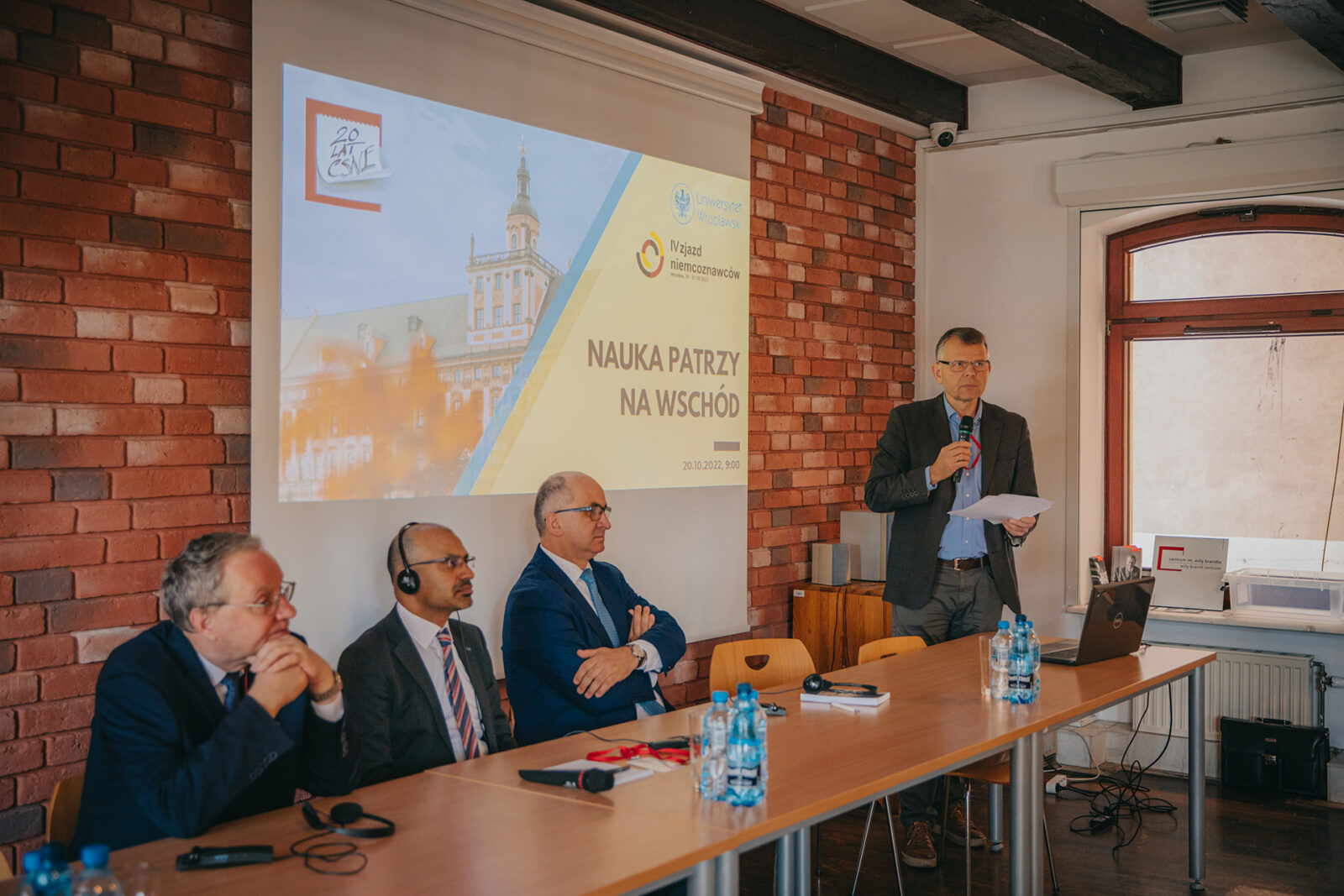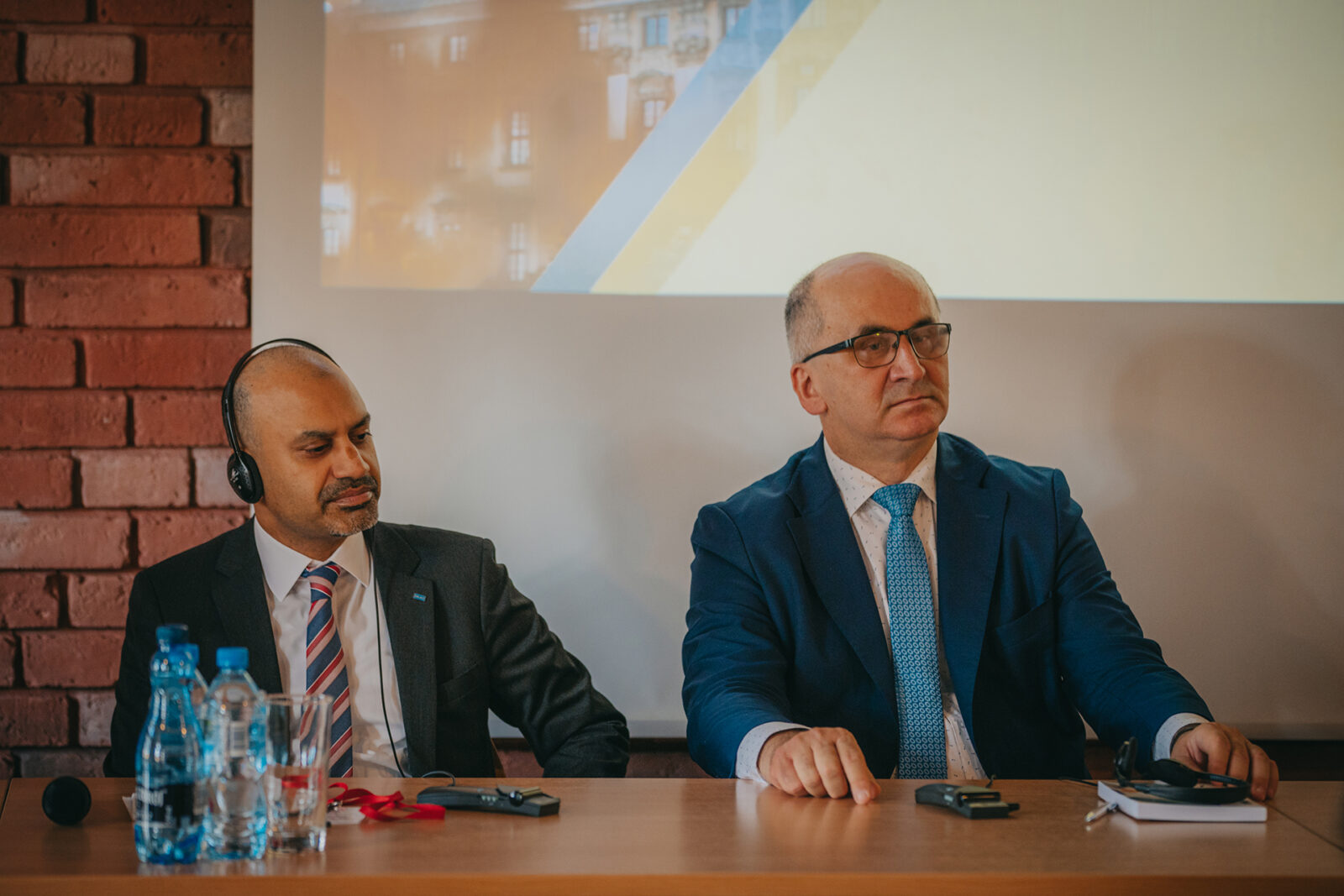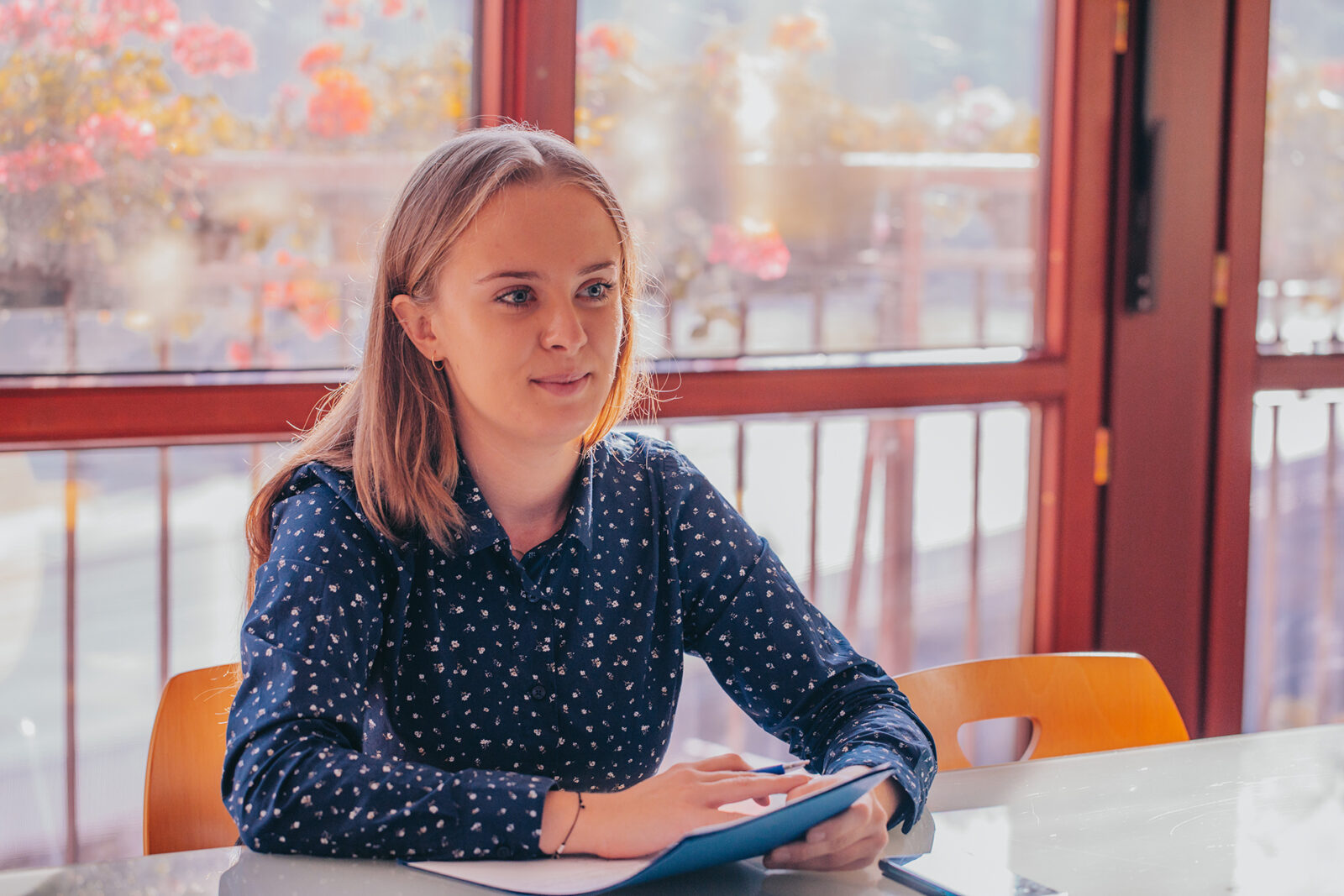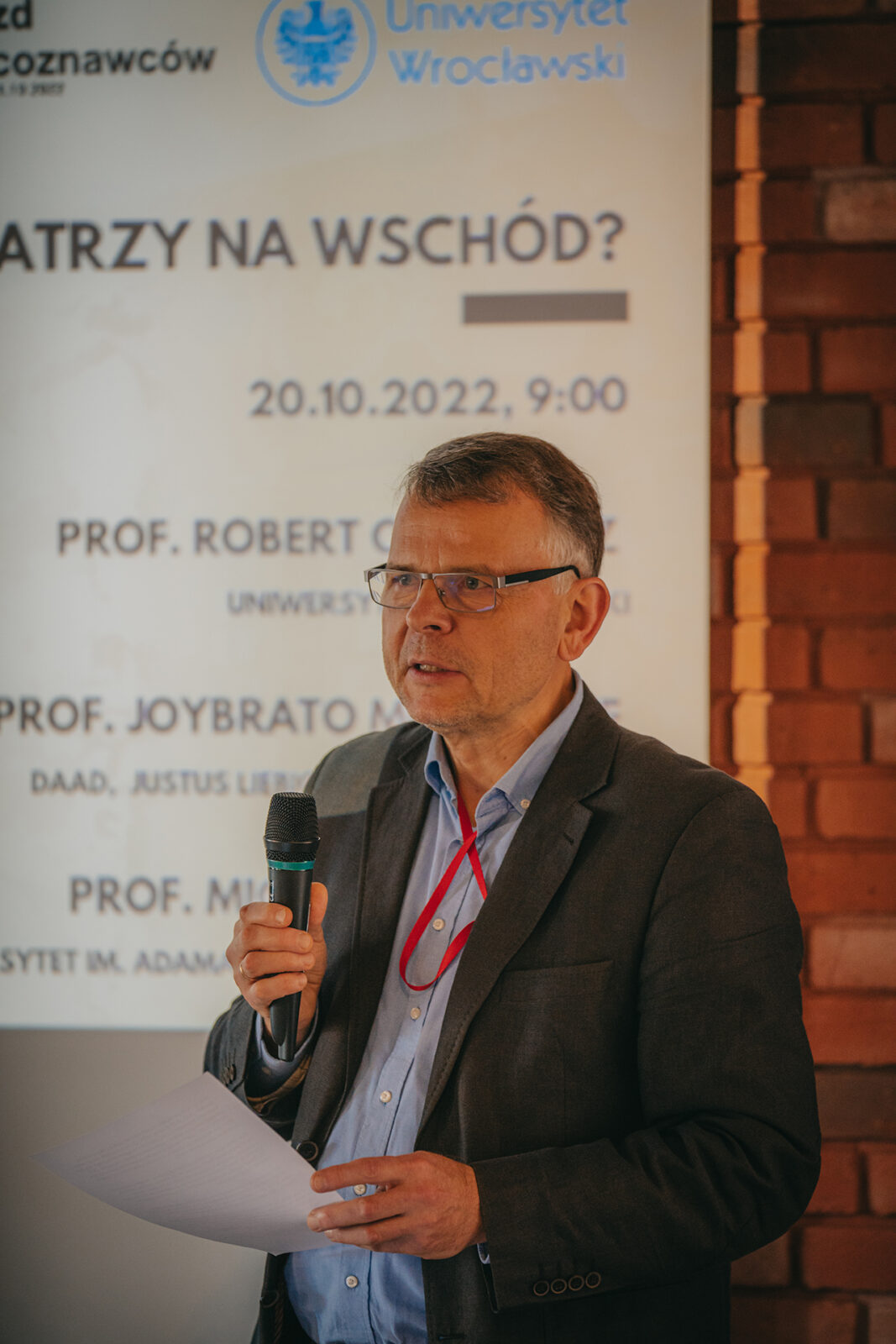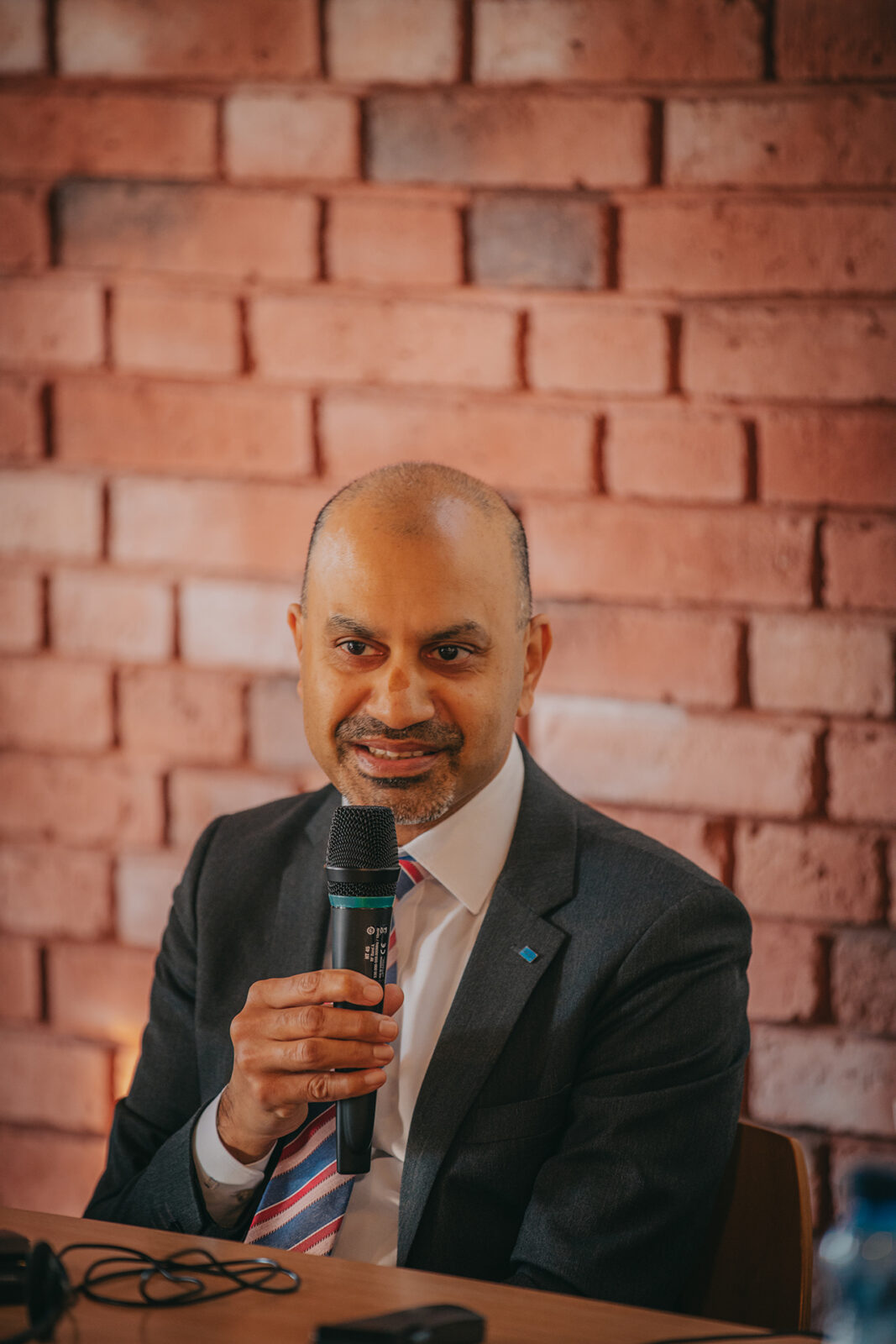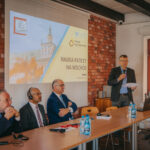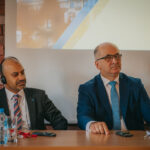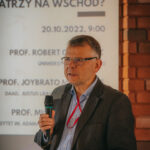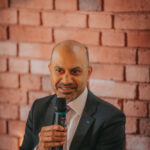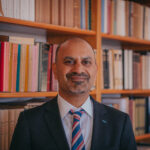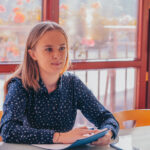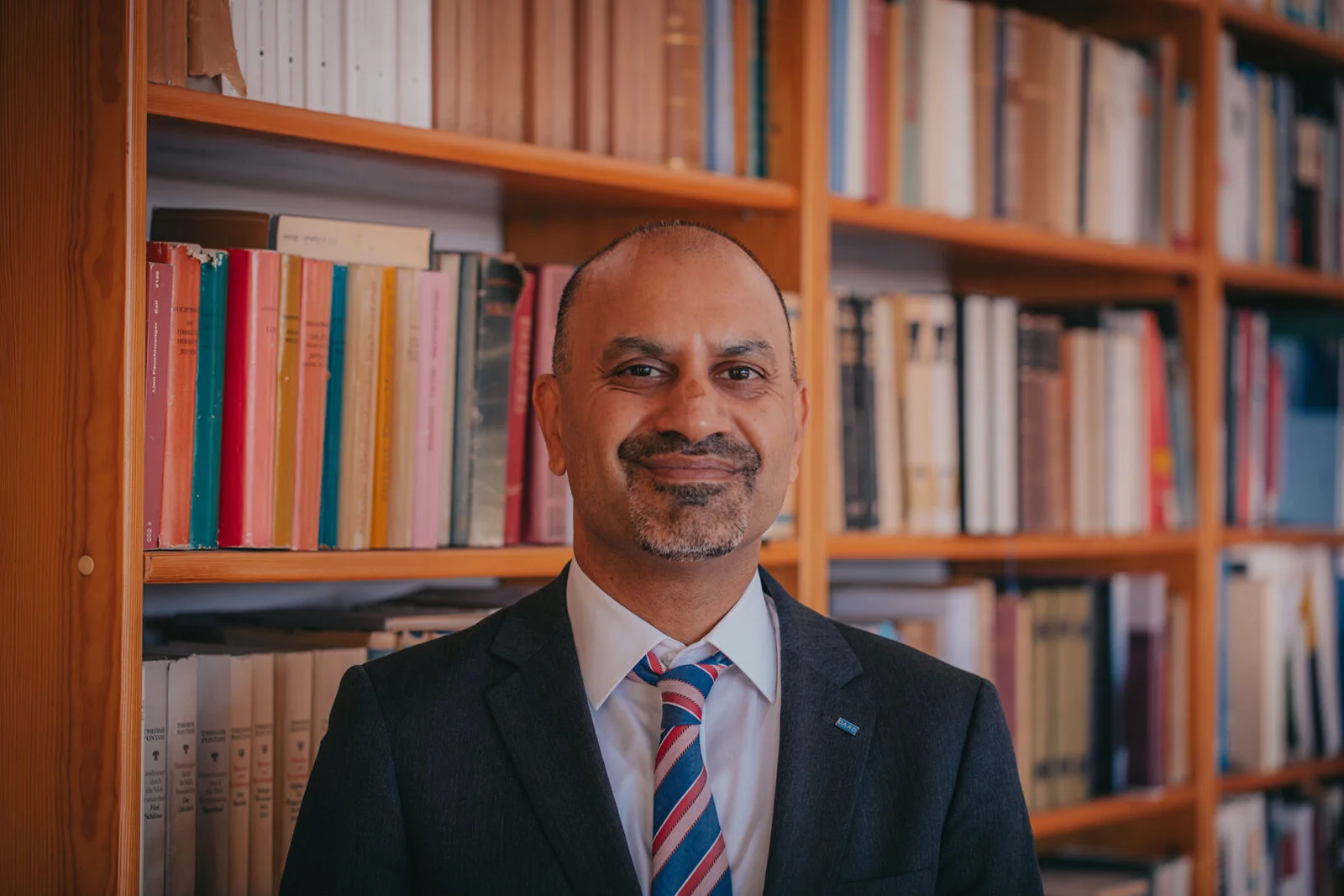
Interview with Prof. Dr. Joybrato Mukherjee at the 4th German Studies Convention
On 19-21 October 2022, the 4th German Studies Convention under the title “Germany looks to the East” was held at the Willy Brandt Center for German and European Studies. The convention is a cyclical scientific meeting, also open to various popularisation activities, organised by the Center at the University of Wrocław. The institution is celebrating its 20th anniversary this year. The Center is a joint initiative of the University of Wrocław and the German Academic Exchange Service (DAAD).
This year’s Convention was attended by researchers from Poland, Germany and other countries. Among the invited guests was Prof. Dr. Joybrato Mukherjee, President of DAAD and President of Justus-Liebig-Universität Giessen. Below is an interview with the professor, which was conducted by mgr Maria Kozan (Communication Department of the University of Wrocław) during the 4th German Studies Convention.
Maria Kozan: We meet on the 20th anniversary of the Willy Brandt Center for German and European Studies. The centre is a landmark of German-Polish cooperation within the DAAD in Wrocław. After 1989, the DAAD was a new perspective for our researchers at the university: scientific, financial, organizational. How do you evaluate the effects of this cooperation? Here in Wrocław, in Poland and in Central Europe?
Joybrato Mukherjee: 1989-1990 was a watershed for everyone in Europe and especially for us in Germany. We discovered, or rather: rediscovered, after 1989-1990 the central eastern and eastern part of Europe, including, of course, our neighbour country, Poland. I think the Willy Brandt Center, which was established in 2002, has really turned into a focal point of joint research into the shared cultures of Poland and Germany and has contributed a lot to a better understanding of each other’s perspective on shared problems, shared histories, shared conflicts as well. This is especially true in light of today’s turbulent developments in the eastern part of Europe with Russia’s war against Ukraine. In general, I believe that the partnership between Polish universities and German universities has developed very successfully. I do think that German universities have assisted Polish universities in many different ways on their way into the European Union. Moreover, the German Rectors’ Conference and the Polish counterpart have a particularly good interaction and close collaboration and we at DAAD also collaborate intensely with our polish sister organization, the NAWA. Actually, NAWA was built after the model of DAAD and we are quite proud of the fact that Poland built an academic funding organization according to the DAAD template. So I believe that the partnership between Poland and Germany, especially in academia, is extraordinarily strong and we hope that through close academic collaboration, we can also contribute to a better understanding between our two cultures.
MK: Now we are speaking immediately after the debate “Science looks to the east” and here in Poland we are aware that this is a crisis and breakthrough moment for academic activity and cooperation because of the covid pandemic and the war in Ukraine as well as the energy and economic crisis. How will DAAD’s priorities change in this context? I mean, migration and war in Ukraine.
JM: DAAD has existed for almost 100 years through very difficult and changing times, but our core mission itself did not change significantly ever since our re-establishment after WWII in 1950: Our core mission is to provide a platform for interaction between students, researchers, scholars, to fund international projects so that people from different countries and different cultures can get to know each other interculturally and work together in science and in scientific projects. This is something we will continue to focus on and this remains–especially after the 24th of February–to be an even stronger mission. Having said this, we also have to be truly clear about our relation to Russia, the aggressor country who has waged war against Ukraine without any reason. We have to stand by our Ukrainian partners and friends–which we do–and we have learned a lot from our polish partners and friends in recent months. I visited Poland already in March and had talks with NAWA, with people from politics and science organizations here, to learn about what we can offer in Germany to our Ukrainian partners. So, the mission of DAAD will remain the same. Our slogan ‘change by exchange’ will remain the same, because we believe that global change also against the light of the climate crisis and other global challenges changing the world, can only be addressed together. We need academic exchange for that. What becomes more important in this decade is to accept the fact that what we do in science and academia–what DAAD does as an international funding organization–is relevant to foreign policy at large. Our work is not entirely outside politics, it is relevant to politics, and we have to accept our responsibility for Ukraine also in that sense. Thus, when Ukraine is to find a way into the European Union, this will not only happen in the economy, it will not only happen at political summit meetings, but it will also happen through research collaborations and through student exchange. We have to accept and embrace that we have an elevated responsibility with regard to society at large.
MK: After 1989, DAAD had a significant impact on the Central European scientific community. How will our cooperation change in the current situation, will we look even further east together? How to implement cooperation under conditions of war and mass migration and mass immigration?
JM: At present, there are a number of hotly disputed issues between Poland and Germany, e.g. concerning the German policy towards Russia over the past 30 years and concerning the issue of reparations. So, there are a number of conflicts between Poland and Germany, but I hope that politicians and responsible people in Poland and Germany understand that we have to work together and stick together even closer after the 24th of February. Whatever divides Europe and whatever divides Poland and Germany as two major European Union member states, is an advantage to our adversary in the east, namely Putin. This is the time when the members of the European Union have to stand by each other and help each other, and there should be no internal conflicts within the European Union. Facing the Russian challenge from the east as a true union is important, but we also have to talk about the other direction, namely the West. We do not know what will happen in the US midterm elections, we do not know what will happen in the next presidential elections in the United States. I think Poland and Germany and other countries in the European Union have to accept the fact that we can no longer rely on the United States alone. We have to empower ourselves in Europe and we have to overcome our divisions within Europe for that. So, collaboration, cooperation, sticking together, solidarity–these are the keywords for the years to come. I believe a big country like Poland, the major country in the eastern part of the European Union and Germany as the most populous member state of the European Union are particularly important players in this regard. But Poland is no longer the east: From a German perspective, Poland is the west.
MK: Let’s move on to the University of Wrocław. How do you see the place and role of organizations, institutions such as the Willy Brandt Center for German and European Studies in this new current situation?
JM: I believe successful and attractive universities like Wrocław, our host institution as we are sitting here on the premises of the University of Wrocław, are particularly important players because whatever we discuss in the area of academic collaboration always boils down to particular universities. It is not DAAD nor the German Rectors‘ Conference, it’s always individual institutions, individual scholars that get things done. If a prestigious university like Wrocław goes ahead and supports the Willy Brandt Center for 20 years, then this is an important signal. The Willy Brandt Center has done an incredible job over the past 20 years and will continue to do so. It is a fantastic team, Professor Ruchniewicz has been awarded a number of prizes and it produces an impressive output. Moreover, I guess what I said about DAAD and academia in general is also relevant to the Willy Brandt Center: This is a time of a huge geopolitical conflict, within Europe we do have a number of conflicts and there are differences in opinion and perspective between Poland and Germany. The Willy Brandt Center as a Polish-German institution is in a very demanding and important mediating role. To fulfil this role, it has to be autonomous and sovereign and also has to continually raise its voice and provide advice based on academic research towards both sides. So, it continues with its mission and I expect that mission to become more complex and more important at the same time.
MK: Thank you very much for the interview.
